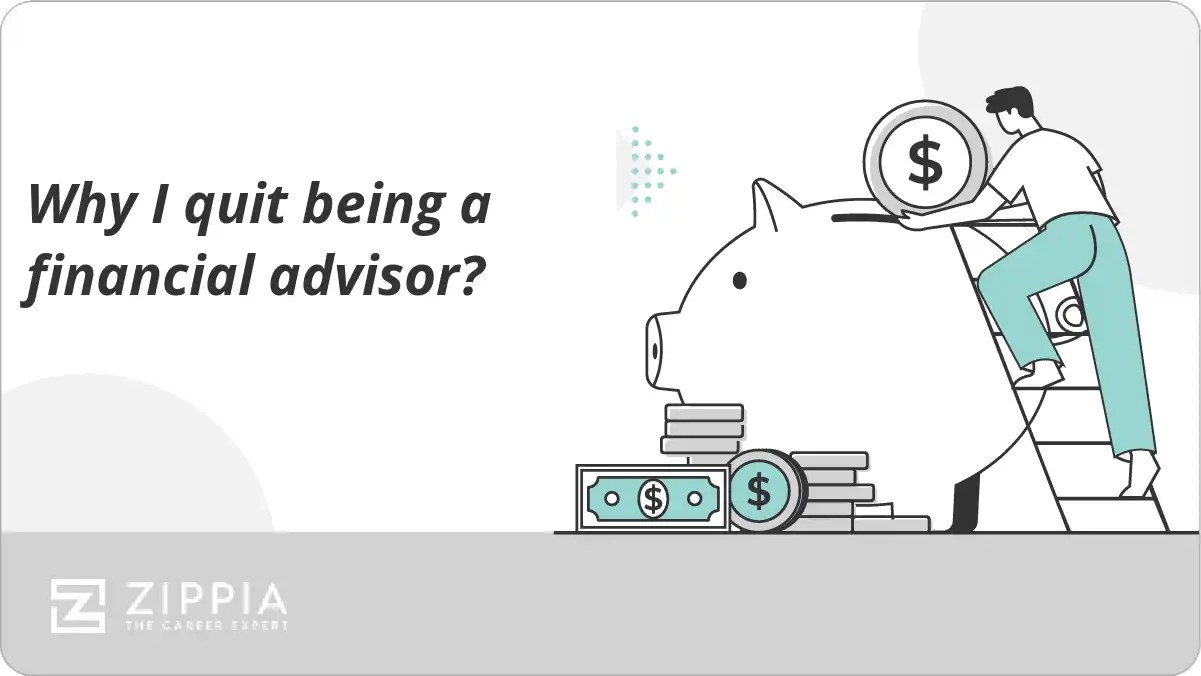FAQs
We were constantly being delegated one-off tasks without context of how we impacted the business, or client, and we felt a lack of ownership over our roles. Without a clear picture of the practice, it was difficult for us to provide insight on improvements to the business or client experience.
Why are financial advisors quitting the industry? ›
Lack Of Fulfillment
They are required to spend their days selling products and services they don't believe in. Far too many advisors find themselves working 9-5 (or worse) at a job that doesn't fulfill them or make them happy.
Why do people leave their financial advisor? ›
Sometimes, clients might simply feel they are not compatible with their advisor's communication style, investment philosophy, or other personal aspects. This can lead to a breakdown in the client-advisor relationship and lead them to seek out an advisor with whom they feel more comfortable.
Why I failed as a financial advisor? ›
A lot of failure within the financial advisor industry comes down to either not knowing or not practicing the fundamentals. For example, every financial advisor should prospect and follow up - that's a fundamental thing. However, when advisors don't prospect, they put themselves in danger of failing.
Why not become a financial advisor? ›
High Stress Industry. Because of the potential volatility of the financial market, being a financial advisor will inevitably generate high levels of stress. As a financial advisor, you'll be asked to wear multiple hats when dealing with clients, as well as deal with second-hand stress from these same clients.
What is the disadvantage of being financial advisor? ›
Cons of Being a Financial Advisor
Building an advisor practice and growing a client base may be challenging. Completing the necessary requirements to get certified and licensed can be time-consuming and costly. Working hours are often long, particularly in the early stages of growing an advisor business.
Can you quit a financial advisor? ›
Regardless, if you're not feeling fulfilled in your current advisor relationship, remember: You can always leave. “A financial advisor relationship inevitably gets into more than numbers … it can be incredibly close,” Brugge says.
Is it easy to leave financial advisor? ›
In most cases, you simply have to send a signed letter to your advisor to terminate the contract. In some instances, you may have to pay a termination fee.
What happens when your financial advisor quits? ›
In fact, you'll receive a call from your new advisor and will need to decide whether or not to work with the team without the advisor you had. Your money remains in place, and if you choose to leave the team, you can just transfer your money to another advisor.
What is the hardest part of being a financial advisor? ›
What is the hardest part about being a financial advisor? The hardest part about being a financial advisor is often the constant need for client prospecting and business development, especially in the early stages of one's career.
Becoming a Financial Advisor
| Pros | Cons |
|---|
| Unlimited earning potential | You must develop a client base |
| Low start-up costs | Marketing costs vary widely |
| Lifetime learning | You will never learn everything |
| Huge range of products + strategies | Consider a somewhat narrow focus |
5 more rowsHere are some red flags that it's time to move on: Bad advice leads to poor performance: One of the most glaring signs that it's time to let go of your financial advisor is poor performance in managing your investments. If you find your portfolio consistently underperforms compared to the market, it's a red flag.
Is there a future for financial advisor? ›
The financial services industry is continuously evolving, leading to questions about what the future of financial advisors might look like. The good news is that the employment outlook for personal financial advisors appears bright, with an expected 15% growth rate through 2031.
Do financial advisors have a bad reputation? ›
Their jobs account for about 10 percent of employment in the finance and insurance sector. Despite the prevalence and importance of financial advisers, they are often perceived as dishonest and consistently rank among the least trustworthy professionals.
What do I love about being a financial advisor? ›
the ability to help people and provide service (the overwhelming first choice) independence and flexibility. the quality of the relationships that advisors form.
Are financial advisors declining? ›
The firm's latest study, “The Cerulli Report—U.S. Advisor Metrics 2023,” finds that over the next decade, 109,093 advisors, or 37.5% of the industry headcount, are set to retire—and will take 41.5% of the industry's total assets with them as a result.
How many financial advisers have left the industry? ›
Despite over 12,000 financial advisers leaving over the last four years, Adviser Ratings reveals that almost a quarter are thinking of following suit in 2023. According to Adviser Ratings, 11% of advisers planned to exit the profession in 2023, alongside 12% who felt uncertain whether to remain or seek work elsewhere.
Are financial advisors being replaced? ›
In conclusion, while the question “will AI replace financial advisors?” provokes thought on the evolving landscape of financial advising, the consensus points towards a future where AI does not replace but rather complements human financial advisors.
